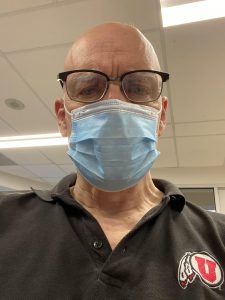
It’s 3:00 AM, July 3rd, 2020, in the Ottawa Hospital Civic Campus emergency department (ED). I have been here since 3:00 PM, July 2nd. The journey began in mid-January when I started to experience occasional difficulty swallowing my food. The swallowing problem was recurring in early March, and there was now a soreness in my throat. In addition, my wife noticed that the register of my voice seemed to be changing. OK, time to do something.
Getting a problem looked at in Canada requires one to go through your family physician. By US standards, the Canadian health care system is conservative in its use of diagnostic procedures; that is, they think that less is often more. So there are, by US standards, delays in getting images or scans. The bigger problem, though, is the pandemic. As part of a lockdown, Ontario has ordered hospitals and clinics to postpone non-urgent care.
I was able to get a chest x-ray and standard bloodwork, but they revealed nothing. I tried to get a videofluoroscopic study of my swallowing problem, but I couldn’t get through the waiting list. Weeks passed. My PCP pleaded with the diagnostic clinics. They promised to get back to me for a phone appointment to evaluate whether I need a diagnostic procedure. It doesn’t happen.
Then, on July 2nd, I started coughing blood. I called my family doctor, and my only option is to go to the ED. I got there at 3:00, and it was standing room only. This is Canada, so the crowd was orderly and cooperative, but it was not a good scene. Finally, after five hours of waiting, I saw a resident. I told him my story. He responded using medical words that translated to “Uh. Oh.” He sent me to get a computerized tomography (CT) scan. I got scanned at about 11:00 PM. And then I waited.
This brings us to 3:00 AM. I am called to an exam room. An attending physician comes in. She says, directly but gently and gracefully, “I have serious news.”
There is a moment in Alan Furst’s The Polish Officer in which the title character, a Polish army officer leading a resistance group, is woken by gunfire in the night. It’s the Wehrmacht, assaulting the barn where his unit is hiding. He looks at a comrade, and in the glance, they exchange the recognition that “The time that we always knew would happen has happened.” I have been through this time — the discovery that someone has cancer — with friends and family. Now it’s my turn.
The CT scan showed that I have a mass in my oropharynx, the middle component of the throat. Later that morning, I see an ENT surgeon who had the same view as the ED doc, “This is an oropharyngeal squamous cell carcinoma [OPSCC] until proven otherwise.” He did a biopsy with a needle through the side of my neck.
On the 7th, I got a call from my family doctor with the results of the biopsy. “I am going to be straightforward. This is bad news.” The mass is indeed an OPSCC, with lymph node involvement to boot. The report also included details about the staining of cells on the slices of my tumour on the pathologist’s slides. I’m sure it’s crucial, but it made no sense to either of us, which we found hilarious. Thank God that my doctor speaks my native tongue, which is Black Humour. The other good news is that OPSCC can often be treated successfully.
The upshot is that I am now a cancer patient during the COVID-19 pandemic.
I’m going to keep a journal of this experience. There is a genre of health professionals narrating their experience as patients. That’s not quite what I want to do. I’m going to mostly avoid making this about me, partly because I’m not the writer that, say, Paul Kalinithi was. Instead, being a cancer patient provides a point of view to analyze the global health crisis. The pandemic is obstructing the care of many other conditions. I may end up becoming collateral damage of the coronavirus because COVID-19 delayed my diagnosis. Or was that a fault of Canadian medicine? If so, how ought we address it? Or I might become a direct casualty of the pandemic because my age and illness place me in a high-risk category for COVID-19. You — meaning now the young and healthy population — have a role to play here: please wear your masks.
I have spent much of my career studying health care systems, often from an ethics framework. Perhaps we can learn something from this.

